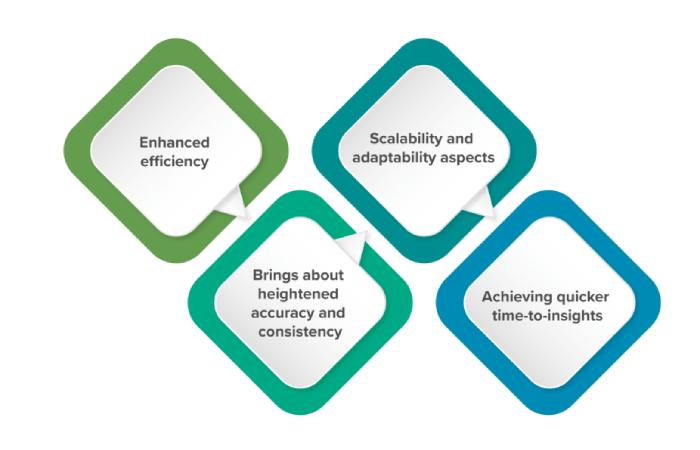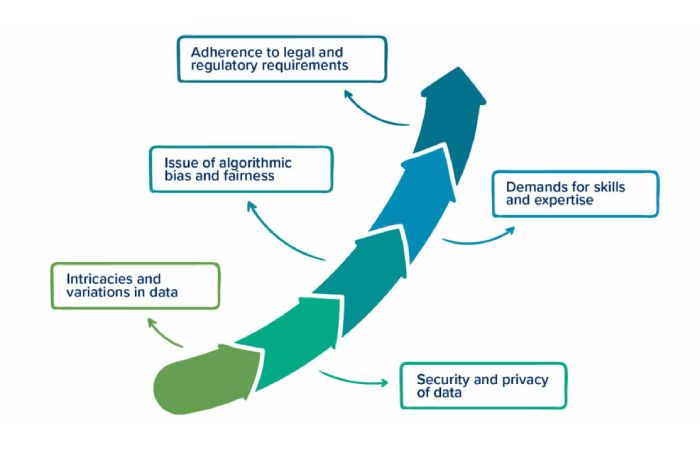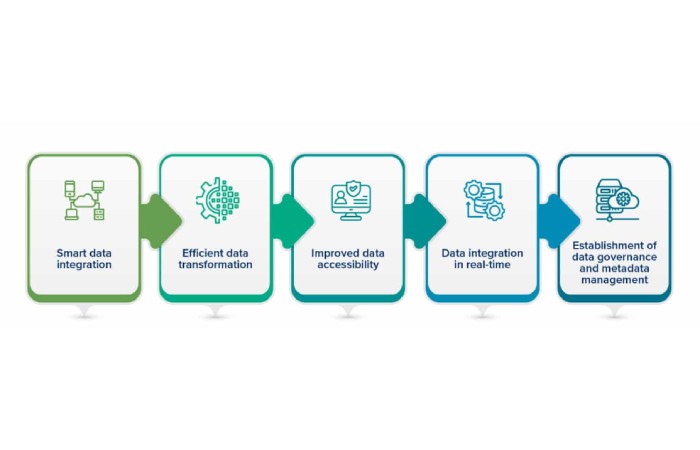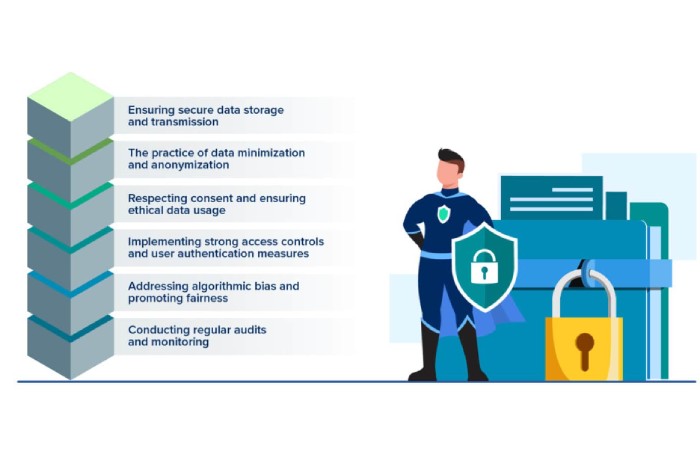The practice of data engineering in digital product development, which includes collecting, transforming, and organizing data analysis, is on the verge of a significant revolution thanks to the initiation of artificial intelligence (Gen AI). A subset of artificial intelligence (AI), Gen AI focuses on forming AI systems that can generate new knowledge and insights. The potential impact of Gen AI on data engineering is enormous and promises to completely change the way we process, analyze, and use data.
This blog will explore the several aspects of Gen AI in data engineering for digital product development. It will highlight its contribution to improving data quality, streamlining operations, improving data integration, addressing privacy and security concerns, and ethical considerations depending on its implementation. By delving into these areas, we can better understand how Gen AI shapes the data engineering landscape and its profound impact on our data-driven society.
The significance of GenAI

To understand the future importance of Gen AI in data engineering, let’s look at some interesting statistics:
- Data’s exponential growth: Data has experienced enormous growth. IBM claims that almost 90% of the world’s data was created in the last two years. This rapid increase in data volume poses a challenge to traditional data processing methods. However, the AI generation has the potential to solve this problem by automating data processing tasks and extracting valuable information from large volumes of data.
- Challenges with data quality: Data quality remains a major issue in the data science industry. According to the Data Warehousing Institute, the impact of poor data quality is estimated to cost organizations in the United States approximately $600 billion annually. Using Gen AI techniques such as machine learning algorithms and automated data cleaning methods can significantly improve data quality and exactness, reducing errors and inconsistencies in data.
- Need for automation: Data processing tasks can consume significant time and resources. Gartner predicts that by the end of 2023, more than 75% of organizations will use AI-powered tools for data management activities. The AI generation has the potential to automate many data processing processes, such as integration, transformation, and creation of data pipelines, allowing data engineers to devote their time to more valuable efforts.
- Increasing complexity of data integration: As the number of data sources and formats increases, the complexity of data integration increases. A survey conducted by SnapLogic found that 88% of data professionals face challenges in integrating data from different sources. The AI generation can play a significant role in improving data integration, which can help reduce the time spent by data engineers in the production process by using intelligent algorithms to identify data relationships, display charts, and ensure seamless integration of different databases.
- Concerns about data privacy and security: As the value of data increases, protecting data privacy and security becomes important. The World Economic Forum predicts that cyberattacks could cause global losses of $10.5 trillion by 2025. Artificial intelligence generation brings opportunities and challenges in this regard, as it can help identify and mitigate security risks and heighten concerns about the liability management of sensitive data and protection against algorithm bias.
Exploring the Benefits and Challenges of Data Processing for the AI Generation
The transformative impact of automation on manufacturing engineering companies is undeniable, and Gen AI has enormous potential to solve various data-processing challenges. Using Gen AI allows organizations to improve data processing processes, increase efficiency, and unlock new opportunities. However, it is important to acknowledge Gen AI’s challenges beyond these benefits. Let’s take a look:
Advantages Of Employing Gen AI for Automating Data Engineering Tasks

- Enhanced efficiency: By automating time-consuming and labor-intensive data processing tasks such as data extraction, transformation, loading (ETL), data integration, and data pipeline creation, Gen AI streamlines processes, resulting in reduced manual labor, faster data processing and enhanced overall efficiency in managing large-scale data across organizations.
- Gen AI brings about heightened accuracy and consistency: Traditional manual data processing processes are prone to human errors, leading to data inconsistencies and errors. Using Gen AI techniques that are capable of processing data consistently and accurately improves data accuracy, reduces errors, and ensures consistency across the data processing pipeline. Consequently, it contributes to reliable and trustworthy results.
- Scalability and adaptability aspects: Given the exponential growth in data volume, scale is becoming an important factor in data engineering. AI-powered generation automation enables organizations to scale their data processing processes more efficiently, whether managing databases, adding new data sources, or adapting to changing business requirements. Generational AI-powered automation provides the flexibility and scalability to address these challenges effectively.
- Accelerate insights: Integrating Gen AI automation accelerates data processing processes, resulting in faster delivery of insights. By reducing manual intervention, organizations can improve data pipelines, reduce bottlenecks, and accelerate the transformation of raw data into actionable information. This provides decision-makers with timely, relevant information, enabling them to make effective data-driven decisions.
Obstacles involved in automating data engineering tasks with Gen AI

- Intricacies And Variations In Data: Data engineering involves managing different sources, formats, and data structures. Generational AI algorithms must understand and adapt to this complexity. However, ensuring that automated processes are accurate and reliable when working with different data sources can be challenging. Careful validation and testing against the database content is required.
- Security And Privacy Of Data: While automation increases efficiency, it raises concerns about data security and privacy. As generational AI automates sensitive data management tasks, organizations need to implement vigorous security measures to protect against unauthorized access, data leakage, and potential misuse. Encryption, access control, and monitoring systems are essential to protect data privacy and security.
- Algorithmic Bias And Fairness Concerns: Generational AI systems use algorithms that learn from historical data, which can introduce unintentional bias if the training data is biased or reflects existing inequalities. Properly assessing and reducing algorithmic bias is important to maintain fairness and equality in data engineering activities.
- Need For Skills And Experience: Integrating Gen AI to automate data science tasks requires a skilled workforce. Organizations must have data engineers with expertise in understanding and effectively using Gen AI technologies. Upskilling and reskilling efforts are critical to bridging the skills gap and enabling data science teams to leverage Gen AI capabilities fully.
- Adherence To Legal And Regulatory Requirements: As Gen AI evolves, regulatory frameworks may need to adapt. Organizations must stay abreast of changing regulations around algorithm privacy, security, and transparency. Compliance with these principles ensures that Gen AI deployments are compliant with legal requirements and minimize potential risks.
Exploring the Contribution of Gen AI to Data Integration and Management

The success of data engineering initiatives in product development largely depends on data integration and management. The generation of artificial intelligence provides powerful capabilities that can change how organizations approach data integration and management processes. Let’s look at the role of artificial intelligence in these sectors and the benefits it brings:
- Intelligent data integration: Using intelligent algorithms, Gen AI enables seamless data integration from different sources. It automatically identifies data relationships, maps schemas, and correlates data patterns, allowing organizations to create a unified view. This intelligent integration empowers data engineers to access and analyze data sets, leading to deeper insights and more accurate decision-making.
- Efficient data transformation: Data transformation consists of formatting, cleaning, and processing raw data to meet specific requirements. Gen AI can systematize data transformation processes, reducing manual efforts and accelerating data preparation for analysis. With Gen AI, data engineers can set rules and algorithms that automatically transform data, guaranteeing consistency and quality throughout the transformation process.
- Improved Access to Data: Gen AI technology improves access to data by enabling self-service data discovery and exploration. With user-friendly interfaces and natural language processing capabilities, Gen AI tools enable business users to independently access and analyze data, reducing the dependency on data engineers. This democratization of data enables organizations to develop a culture of data sharing across teams and departments.
- Real-time Data Integration: In the current scenario, real-time data integration is becoming increasingly important. Gen AI can provide real-time data integration by continuously ingesting and processing data as it comes in, ensuring that organizations can access the most relevant information for decision-making. Real-time data integration powered by Gen AI provides companies with timely insights and enables them to quickly respond to emerging trends and changing market conditions.
- Improve data and metadata governance: Data quality, compliance, and traceability depend on effective data governance and metadata management. The AI generation can streamline data governance processes by automatically capturing and documenting metadata, provenance, and data quality metrics. This improves data governance and ensures that data remains well-managed, well-documented, and traceable throughout its lifecycle.
Maintaining data privacy and security in the age of Gen AI

As Gen AI gains a reputation for data engineering, protecting data privacy and security becomes increasingly important. As organizations use Gen AI techniques to process and analyze massive amounts of data, it is imperative to implement vigorous measures to protect sensitive information. Let’s dive into the key points of ensuring data privacy and security in the era of Gen AI:
- Ensure secure storage and transmission of data: Data is central in generating insights for Gen AI, highlighting the importance of secure data storage and transmission. Organizations should use encryption techniques to protect data at rest and during transmission, decreasing the risk of unauthorized access or data leakage. Implementing secure protocols and maintaining strict access controls will further enhance data security.
- Practice data minimization and privacy: Organizations should implement data minimization techniques to reduce privacy risks by collecting only the data necessary for analysis. Gen AI techniques can help anonymize personally discernable information (PII) by removing automated identifiers or altering data to prevent individual identification. Organizations can protect personal privacy while preserving valuable information by minimizing and obscuring data.
- Respect consent and ensure ethical use of data: As Gen AI processes large amounts of data, organizations must arrange to obtain informed consent from individuals whose data is being processed. This ensures that data analysis’s purpose and potential outcomes are effectively communicated. Adhering to ethical principles and ensuring compliance with data protection regulations are paramount to maintaining trust and responsible data use.
- Implement strict user access controls and authentication: Maintaining access control to data is critical to preventing unauthorized use and manipulation. Organizations should implement strict access controls to ensure only authorized personnel can access sensitive data. Additionally, implementing user authentication methods such as multi-factor authentication adds a coating of security to prevent unauthorized access to Gen AI data and systems.
- Combating Algorithmic Bias and Promoting Fairness: Gen AI systems learn from historical data that may introduce bias or reflect existing social inequalities. Assessing and mitigating algorithmic bias in data processing processes is essential. Regular monitoring, rigorous testing, and validation of the diversity and representation of training data can help eliminate bias and improve the fairness of the results produced by Gen AI systems.
- Conduct regular audits and monitoring: Regular monitoring and surveillance are vital to detect and mitigate potential vulnerabilities or security breaches. Organizations should establish monitoring systems to monitor data access, system activity, and data processing. Continuous computation using data processing techniques and AI algorithms can help identify and mitigate security breaches or compliance issues.
Revealing The New Horizons Of Data Engineering
Generational AI presents tremendous opportunities to improve data processing in product development processes, enhance decision-making, and drive business outcomes. However, organizations must consider the challenges and ethical considerations associated with generational AI to maximize its benefits responsibly.
As data engineering continues to evolve, implementing generational AI and addressing its impact will be critical to shaping the future of data-driven organizations. By staying informed, adapting to technological advances, and following ethical principles, organizations can unlock the full potential of generational AI and thrive in the data-driven era.

